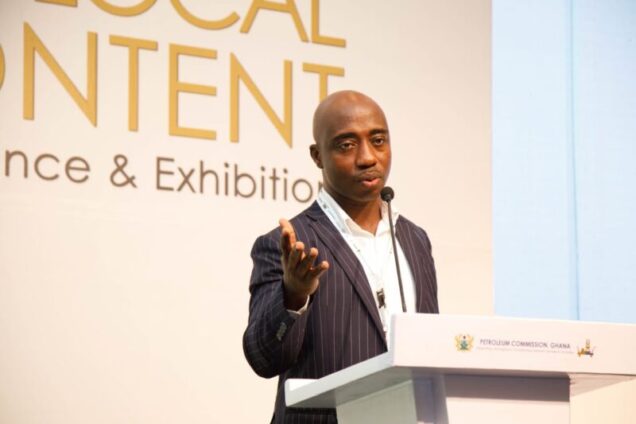By Juliet ETEFE ([email protected])
Leader for the Financial Advisory unit at Deloitte Ghana, Yaw Appiah Lartey, has reechoed the urgent need for a long-term development plan to foster a resilient economy and safeguard businesses from the impacts of political and economic uncertainties.
Speaking at the inaugural Ghana CEO-Presidential Gala in Accra, Mr. Appiah Lartey holds strongly that a structured, forward-looking development strategy could mitigate the unpredictable environment facing the private sector which often struggles with shifting tax policies and heightened political activity.
“Without a concrete long-term plan, we are constantly introducing new measures that do not align well with our goals, creating a cycle of instability. This lack of consistency is particularly harmful to businesses trying to plan and invest,” he noted.
He added that a cohesive development plan would help the country to weather economic “punches” by enabling businesses to survive and adapt to unforeseen challenges.
However, it is an election year, with political parties’ manifestoes not aligning with any long-term national development plan.
The event, which brought together top business leaders and government officials, focused on strengthening the collaboration between the private sector and government.
As such, participants shared ideas to bridge the gap between political agenda and business needs, aiming to solidify Ghana’s private sector as a key driver of sustainable growth.
Mr. Appiah Lartey echoed sentiments of mutual support, stressing that both sides must work together to create a balanced economic environment that encourages investment.
He cited findings from the Economic Intelligence Unit, which recently highlighted two significant risks for Ghana: a potential increase in the tax burden in the final quarter of the year and intensifying political activity affecting government operations.
He explained: “The economic climate has been challenging, with unpredictable tax policies creating uncertainty for businesses. This unpredictability makes it difficult for companies to anticipate and plan for financial obligations, impacting their ability to invest and grow”.
The Deloitte partner elaborated on the importance of tax predictability for investor confidence, pointing to surveys conducted by Deloitte that revealed widespread business concerns about unexpected tax changes.
“Businesses are finding it difficult to predict what lies ahead in terms of tax policies. When governments continually introduce new taxes rather than enforcing existing ones, it creates uncertainty in the business environment,” he observed.
He also stressed the need for Ghana to balance its tax policies with economic growth, comparing Ghana’s tax effort—which stands at 14 percent of GDP—to neighbouring countries like Ivory Coast, Nigeria and Kenya, where tax efforts reach 18 percent of GDP.
“To close this gap, Ghana has to increase its tax efforts, but we must approach this progressively. If we become too aggressive with tax hikes, we risk stifling business growth and investment,” he cautioned.
“You may meet short-term tax revenue targets by raising taxes; but in the long term, you could be undermining investment,” he explained.
He noted that the country has faced multiple setbacks in recent years and must adopt a more robust development framework to endure future shocks.
“Our economy has faced its share of challenges, and like Mike Tyson’s analogy— everyone has a plan until they are punched in the mouth – we have been punched. A long-term plan is essential to ensure we do not just survive, but thrive in the face of adversity,” he said.
The need for resilience was underscored throughout the event, with other business leaders and government officials echoing call for a comprehensive, long-term approach.










